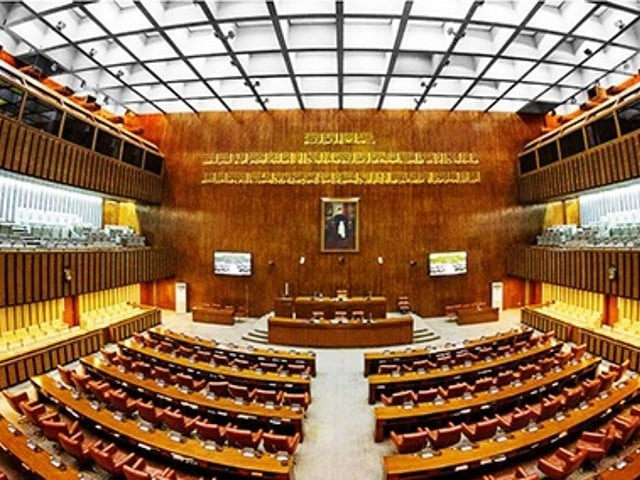The democratic structure of governance rooted in accountability, transparency, and public service, now stands marred by shadows of deception and discord within the Senate. This revered institution, charged with upholding the nation's interests, has regrettably devolved into a stage for political theatrics, where merit takes a back seat to loyalty, ushering in an era of stagnation and betrayal of purpose.
As Pakistan braces for the upcoming Senate elections, the nation's democracy fluctuates on the brink of uncertainty. The Senate, Pakistan's upper house also known as the House of the Federation, plays a pivotal role in fostering national unity by ensuring equitable representation for all federating units. Tasked with proposing and reviewing legislation, the Senate holds sway over critical decisions that shape the legal landscape of the nation. Moreover, its role in scrutinising the actions and policies of the executive branch underscores its mandate of accountability, a cornerstone of democratic governance.
Yet, the Senate, once an embodiment of wisdom and foresight, now stands at a crossroads marred by mediocrity. Hollow debates echo through its corridors, and the once-hallowed halls now house mere placeholders, symptomatic of a system plagued by political expediency, nepotism, and vested interests of elite capture. The erosion of quality within the Senate serves as a stark reminder of the institutional decay that threatens the very essence of democracy in Pakistan.
Amidst these challenges, Pakistan grapples with pressing issues concerning child rights, with a staggering 22.8 million out-of-school children underscoring the urgency of providing access to quality education and safeguarding against exploitation in the form of child labour, domestic labour and child beggary. The nation's literacy rate, hovering around 60% with stark gender disparities with extremely low access for girls’ education, highlights the need for concerted efforts to bridge the educational divide and foster a more inclusive society. Addressing the skill gap for global competitiveness is imperative, necessitating a comprehensive national vision and policy framework to equip the workforce with the requisite skills for success in the ever-evolving global marketplace.
Healthcare remains a critical concern in Pakistan, with infrastructure inadequacies, affordability challenges, and quality discrepancies posing significant hurdles to public health. The country's low health expenditure, standing at a mere 2.9% of GDP, falls short of recommended benchmarks, underscoring the need for substantial investment in healthcare infrastructure and services. Moreover, Pakistan's ranking of 120th out of 139 countries on the World Justice Project Rule of Law Index 2021 emphasises the imperative of a robust legal system that upholds justice, accountability, and the protection of citizens' rights.
With a burgeoning population exceeding 225 million, Pakistan faces mounting pressures on resources and future prospects, necessitating a coherent roadmap for sustainable development and resource management. The entrenchment of elite interests often obstructs meaningful reforms, underscoring the critical role of political will in driving transformative change. Pakistan's global ranking of 124th out of 180 countries underscores the urgent need for bold, inclusive reforms to address systemic issues and steer the nation towards a more equitable and just future.
In conclusion, the Senate must prioritise critical issues, champion reforms, and place the well-being of the people at the forefront of legislative agendas. As the Senate elections loom large, citizens find themselves at a pivotal juncture, demanding fundamental rights, equity, the rule of law, and freedom of speech as enshrined in the Constitution of Pakistan. An overhaul of the Senate is imperative, guided by principles of competence, integrity, and public service, where meritocracy, not political lineage, dictates appointments.
Imagine a Senate where seasoned economists dissect fiscal policies, legal luminaries craft robust laws, and scientists advocate for evidence-based decision-making. This revitalisation hinges on transparency, accountability, and an unwavering commitment to the common good.
The Senate elections are not mere rituals; they are the pulse of democracy. With a substantial budget allocated to Senate operations, taxpayers rightfully demand tangible outcomes that prioritise the people's welfare. As citizens, the time has come to demand political parties who will guide democracy away from the precipice, steering it towards a future characterised by excellence, integrity, and progress. Failure to heed this call risks the collapse of democracy and the fading of legislative excellence into obscurity. Therefore, select the appropriate candidates and refrain from introducing political jugglers.



COMMENTS
Comments are moderated and generally will be posted if they are on-topic and not abusive.
For more information, please see our Comments FAQ